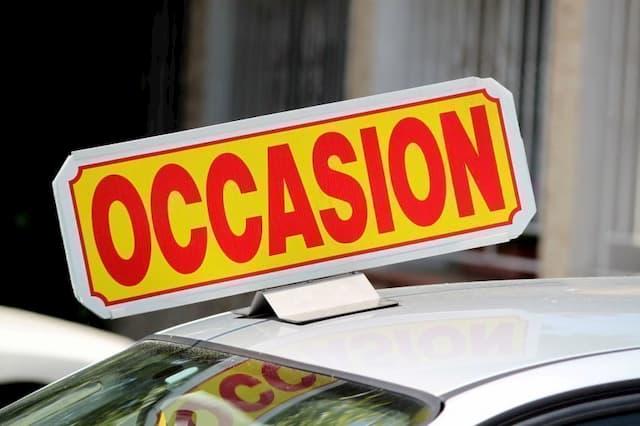Used Cars: The Argus Suspends its Rating During the Confinement Period

For the first time since 1940, the Argus group has frozen its famous rating, a benchmark for the prices of used cars. The objective: to avoid a collapse in the value of goods.
Are you planning to have your car taken back by a professional, but confinement prevented you from doing so? Good news: you can hope to resell it in May at the same price as two months ago. Indeed, the Argus has decided to suspend the recovery rating for used cars, motorcycles and utilities for the duration of the confinement.
It is a historic decision taken by the group, faced with the exceptional health and economic crisis that France is going through: the Argus rating had never been frozen since 1940. “It is a strong action that will benefit both professionals so that they do not lose the value of their stock, and individuals, to protect their purchasing power ”, indicates Olivier Flavier, general manager of the Argus group.
What is the Argus rating?
The Argus rating, established by around twenty experts from the group bearing the same name, has been a benchmark on the used vehicle market since 1930. “It provides a reference price, which serves as the basis for discussion when you go to a buyer to sell your vehicle, ”explains Olivier Flavier, managing director of the Argus group.
Please note, the rating does not fix the price of the vehicle. The buyer is based on the depreciation of the vehicle – a new car loses 20 to 25% of its value in the first year – and on other criteria, such as the general condition. For professionals, the Argus rating is used to add value to their stock.
Avoid depreciation of 180 million euros
Let’s take a concrete case: a car that was worth 6,000 euros in mid-March should only be worth 5,800 in mid-May. “The value decreases while during the two months that the confinement lasted, the car was not used for the individual and the professional kept it in his stock since he was not authorized to make sales”, details the boss of the group which belongs to Leboncoin.
With this freeze on the Argus rating during the confinement period, the group estimates that it will enable professionals to avoid “a depreciation of their stocks of around 180 million euros”. A calculation that is based on the 400,000 used vehicles in stock in France, for an overall value of nearly 6 billion euros – knowing that a used vehicle sells on average 15,000 euros.
Little effect on sales between individuals
“Individuals are also beneficiaries of this measure since they can no longer since mid-March have their vehicle taken back by a professional,” continues Olivier Flavier. They may, therefore, consider the sale of their property on the same basis of negotiation as before the confinement.
Note that this freeze only concerns the recovery rating and not the market rating, that is to say, that indicated by individuals when they sell their used vehicle without going through a professional. “This is the rating that we see on Bon Coin ads for example. But it has not budged since there have been no sales in the past two months. ”
What impact will deconfinement have?
There remains a big question for all: what effect will deconfinement have on the used car market? “It’s difficult to say, we don’t usually anticipate the market,” reacts the director-general of Argus, who however imagines two opposite scenarios:
Either the French will prefer the car to public transport, for health reasons, and if the summer holidays are confined to French territory this could also favour the market. Either the deconfinement is progressive, teleworking is always very encouraged, and therefore we do not use the car. And then we don’t know if and how consumers will put money back into the economy after the crisis…
In France, around 5 million used cars are sold each year, compared to 2 million new cars. Among these 5 million, 2 million transactions are made from professionals to individuals and 3 million from individuals to individuals.
Enjoyed this? Get the week’s top France stories
One email every Sunday. Unsubscribe anytime.


